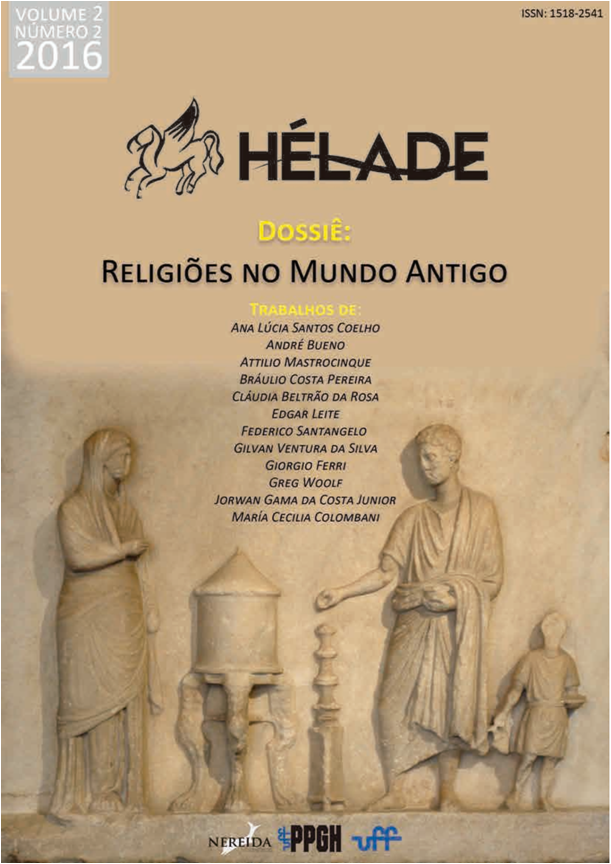ONLY CONNECT? NETWORK ANALYSIS AND RELIGIOUS CHANGE IN THE ROMAN WORLD
DOI:
https://doi.org/10.22409/rh.v2i2.10568Palavras-chave:
Religious change, Network analysis, Roman Empire.Resumo
The emergence during the Roman Empire of new religious forms and groups alongside the collective cults of the city and ruler worship invites analysis in terms of various kinds of network theory. Some of the main version of network theory currently in use are examined, and their applicability to ancient material is discussed and assessed. Network thinking turns out to be very useful, but the problems in conducting a more formal network analysis are formidable. Network theory does allow us to approach religious change from new directions and two models of change in current use – conversion as contagion, and religious change as the spread of idea – are examined. Thinking about religious change in these terms forces historians to formulate more precise descriptions of change as a process that involves socialization and the routinization of new habits and rituals, as well as a process of learning a new way of imagining and describing the cosmos.
Downloads
Downloads
Publicado
Edição
Seção
Licença
Ao encaminhar textos à Revista Hélade, o autor estará cedendo integralmente seus direitos patrimoniais da obra à publicação, permanecendo detentor de seus direitos morais (autoria e identificação na obra), conforme estabelece a legislação específica.
O trabalho publicado é considerado colaboração e, portanto, o autor não receberá qualquer remuneração para tal, bem como nada lhe será cobrado em troca para a publicação.
Os textos são de responsabilidade de seus autores. Citações e transcrições são permitidas mediante menção às fontes.
O uso dos textos publicados em nossa revista poderão ser distribuídos por outros meios, desde de que atribuídos devidamente à autoria e publicação.

